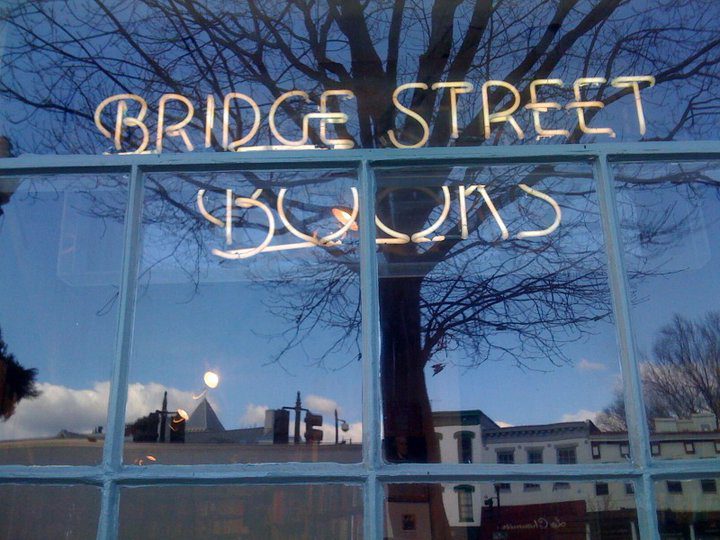Bridge Street Books to Become Nonprofit
By • January 16, 2018 0 2639

Georgetowners can breathe a sigh of relief — at least those who are devoted to Bridge Street Books on Pennsylvania Avenue.
Georgetown’s venerable (and sole surviving) bookstore, two doors down from the Four Seasons hotel, won’t close, according to Megan Ronan, who has managed the store for more than seven years. The store is looking to evolve into a nonprofit, perhaps a membership organization devoted to education through reading.
“We are mostly exploring the support we may have in terms of membership and fundraising,” Ronan told The Georgetowner Jan. 16. “We are very lucky to have so many people interested in it.”
After its gregarious and affable owner Philip Levy died unexpectedly last October, many in Georgetown were concerned that the store they love might close. Levy, who opened the narrow two-story shop in 1980, would often engage customers and drop-ins in lively conversations about books and issues of the day.
The store’s outdoor table of discounted used books almost always has a few browsers, thumbing through tempting copies of old and new classics, history and especially political books for $5 and up.
With a reputation for carrying books not found in other bookstores, as well as current titles, Bridge Street was characterized by Washington Post columnist George Will (whose office is nearby) as “a small island of individuality.” Others refer to it as “the intellectual’s bookstore.”
More than a bookstore, “It was a place of intense discussion, debate and conversation,” recalled Washington Hebrew Congregation President David M. Astrove at an Oct. 16 memorial gathering for Levy. Nowhere in D.C. is there anything quite like the store, which survived the closing of many others in Georgetown: Olsson’s, Barnes & Noble, the Saville on P Street, the Francis Scott Key shop on 28th Street, Bartleby’s on 29th. For new books, only Bridge Street remains.
Among Bridge Street’s best sellers, according to a story in the Washington Post, are “Berlin Noir” (1994) by Philip Kerr, which Levy described as “Raymond Chandler meets Humphrey Bogart”; “Origins of Totalitarianism” (1951), written by the political philosopher Hannah Arendt; and “Air Guitar: Essays on Art & Democracy” (1997) by art critic and scholar Dave Hickey.
In its new configuration as a nonprofit, the store will probably expand its calendar of readings and author events. “But we won’t be another Politics and Prose or Kramer’s bookstore,” said Ronan. “We all have different identities and niches. Ours is more literary than the others.” To date, the store’s readings have focused on poetry.
Most of the staff is expected to stay on. Rod Smith, the other full-time employee, has been there for 25 years. “Since he does most all of the buying, we expect to have a good continuity of offerings,” Ronan said. Four part-time staffers have about 10 years of experience.
“Anyone interested in getting updates about the store’s future can sign up for our blog,” she added. “We’re not sure yet when it all will happen.”
Members of the Levy family have long been involved in Georgetown commercial real estate, especially Philip’s brother Richard, managing principal of the Levy Group, a D.C.-based real estate investment and property management company. His other brother, David, cofounder of the Biograph Theatre on Pennsylvania Avenue and co-owner of the Key Theatre on Wisconsin Avenue, movie houses that closed in the 1990s, died in 2004.

